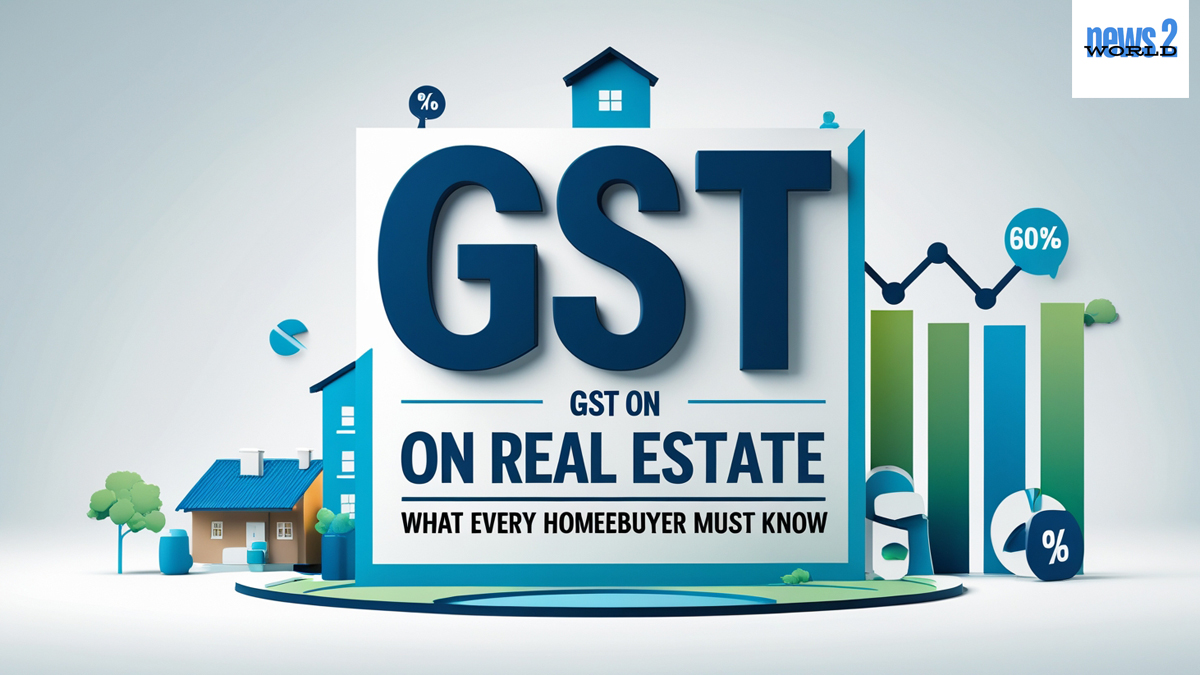
Everyone from homeowners to investors, tenants, buyers, and sellers must understand the intricacies of GST as it pertains to residential property. You can better manage costs and compliance if you have a firm grasp of the regulations governing the Goods and Services Tax (GST) on residential property, whether you’re renting or buying. Stay well-informed for every real estate transaction with this comprehensive blog, which explains key topics including GST on real estate, exemptions, and requirements.
Critical Role of Goods and Services Tax Knowledge in the Property Market
Everybody involved in the Indian real estate market needs to understand how GST on real estate affects them. While GST has simplified taxes by eliminating some indirect taxes, it also has an impact on aspects such as property prices, rental income, and the requirement for ongoing compliance.
Transparency in taxes is beneficial for buyers and tenants; however, developers must also consider how GST may impact their projects. Accurate budgeting and avoiding penalties are both made possible by familiarity with GST regulations.
How much is the Goods and Services Tax on a home?
All residential real estate transactions, including buying, selling, renting, and building, are subject to the Goods and Services Tax (GST), also known as GST on real estate. A Completion Certificate exempts finished properties from the tax, while properties still under construction are subject to it. Rental income from residential properties is subject to GST, however some exceptions apply depending on the property’s use.
- To get the above rates, the following conditions must be met:
- You are not eligible to claim input tax credits.
Buying materials from businesses with a registered owner: All inputs and input services must come from registered suppliers, with a minimum value of 80%.
But this doesn’t include the worth of the following services that go into building apartments:
- Developing rights granted
- Deed of land for an extended period
- Index of floor area
- The electrical value
- High-speed diesel’s worth
- Fuel oil and petroleum
All inward supplies, up to 80% from registered suppliers, should be subject to 18% GST on a reverse charge basis. The only exception to this rule is cement, which is subject to a 28% tax if purchased from unregistered persons.
Critical Distinctions between Real Estate Markets before and After GST
A watershed moment for India’s real estate market came with the introduction of the Goods and Services Tax (GST). Both developers and consumers were confused by the industry’s previous regulation, which was a complex web of indirect taxes, before the introduction of GST. In an effort to promote openness, efficiency, and consistency, the sector’s tax structure was simplified following the introduction of the Goods and Services Tax (GST).
Pre-GST Era
- A plethora of levies, such as value-added tax, service tax, and registration fees, added unnecessary complexity.
- Inaccuracy in state tax rates
- Difficult procedures for compliance
A Post-GST Period
- A unified system of taxes that improves openness
- Developers can buy building supplies with an input tax credit (ITC), which lowers the total cost.
- Buyers can simplify their tax computations by recognizing that GST only applies to properties that are under development.
Impact of Goods and Services Tax on Private Residences
Understanding GST on residential property is just one of many complex tax ramifications of real estate transactions. If you want to make informed financial decisions, knowing whether this tax applies to you is essential, whether you’re a first-time buyer or an experienced investor.
When Does GST Apply?
Acquisition of properties for which construction is ongoing, including those with bookings made before completion
- Commercial rental income from previously owned homes
- Other expenses, such as parking, club dues, and maintenance fees, which may be included in the price of the property
When Goods and Services Tax Does Not Apply
- Properties that have been finished and have a Completion Certificate
- Private residences leased out for individual occupancy
- Real estate resale deals are subject to registration and stamp duty fees.
GST on real estate: An Update for the Year 2025
Ready-to-move-in homes with a Completion Certificate are exempt from GST, but those that are still under construction are. The Goods and Services Tax (GST) increases the final cost for buyers of houses that are still in the development phase.
- Property Tax Rates for Low- and High-Cost Homes
- Without input tax credit, the GST rate is 1% and it applies to affordable housing.
- In metro areas, properties with a price tag of up to ₹45 lakh are eligible for this scheme. In non-metro cities, the carpet area limits are 90 square meters and 70 square meters.
- For homes that do not qualify as affordable, the Goods and Services Tax (GST) is 5% (without ITC).
Additional Costs and GST Clarification
- When selling parking spaces as part of a property deal, GST is due.
- Residential societies that charge more than ₹7500 per month for each home are subject to GST at 18%.
- If the agreement specifies a tax rate for club membership and amenities, that rate will apply.
6 Ways to Be GST Compliant When Purchasing Real Estate
If you want to acquire a house without any surprises when it comes to GST, you need to know the guidelines. To make sure you comply with GST, here are six things you can do:
- Check the Property Status: Before paying GST, verify whether the property is still under construction or is ready for occupancy.
- Get a Feel for GST Rates: Locate the specific GST rate that applies to your property type; for example, 1% for affordable homes and 5% for all other types of homes.
- Review Extra Expenses: Ensure you understand the GST fees for parking, maintenance, and any other services included in the deal.
- Proof of Completion: Verify if the property has a Proof of Completion Certificate, indicating that it is exempt from GST.
- Consider In-Course Financing (ITC) Benefits: Before purchasing an under-construction property, verify if the developer has included any eligible ITC benefits in the price.
- Talk to Professionals: To make sure you’re following GST rules and avoiding problems, talk to law or tax experts.
Conclusion
The Goods and Services Tax (GST) has introduced a unified tax system, simplifying and promoting transparency in real estate transactions in India. However, there may be some lingering questions and issues, so developers and purchasers need to stay informed and up-to-date.
Homebuyers can make more informed choices if they are familiar with the GST on real estate and any applicable exemptions. Through the application of best practices for compliance and the guidance of experts, stakeholders can successfully navigate the complexities of GST, ensuring transparent and open real estate transactions in India.







